Overview
Retailer AI innovations are revolutionizing customer engagement by significantly enhancing support, personalizing shopping experiences, and optimizing inventory management. This article underscores various implementations, including:
- AI-powered chatbots
- Tailored recommendations
These innovations not only elevate customer satisfaction and retention rates but also drive substantial sales growth. Such advancements clearly illustrate the profound impact of AI on the retail landscape, urging stakeholders to recognize and leverage these transformative technologies.
Introduction
The retail landscape is experiencing a seismic shift as artificial intelligence (AI) innovations redefine the manner in which businesses engage with customers. From personalized shopping experiences to 24/7 customer support, retailers are leveraging cutting-edge technologies to enhance satisfaction and drive sales. As industry giants like Amazon and Walmart lead the charge, a pivotal question emerges: how can other retailers harness these advancements to not only keep pace but also excel in a fiercely competitive market? This exploration delves into nine transformative AI innovations that are shaping the future of customer engagement in retail, revealing strategies that could redefine success for brands across the industry.
Intone: 24/7 AI-Powered Customer Support Solutions
Intone's AI-powered voice agents provide unparalleled 24/7 support for retailer AI, ensuring prompt responses to inquiries and significantly enhancing client engagement. This continuous availability empowers businesses to address questions regarding product availability, order status, and returns, free from the limitations of human staffing. By automating these client interactions, retailers can streamline their support processes, guaranteeing that inquiries are resolved swiftly and efficiently.
Furthermore, the real-time analytics generated from these interactions offer invaluable insights into prevalent client concerns, enabling retailers to identify trends, forecast demand, optimize inventory, and enhance overall satisfaction. Research indicates that companies leveraging retailer AI voice agents can experience a remarkable 25% increase in client retention, underscoring the effectiveness of this innovative strategy in elevating the shopping experience and allowing retailers to respond rapidly to evolving consumer demands.
Additionally, Intone's swift deployment of AI agents occurs within weeks, not months, with dedicated support ensuring accuracy and compliance. This practical solution not only enhances service capabilities but also facilitates and the re-engagement of previous buyers.
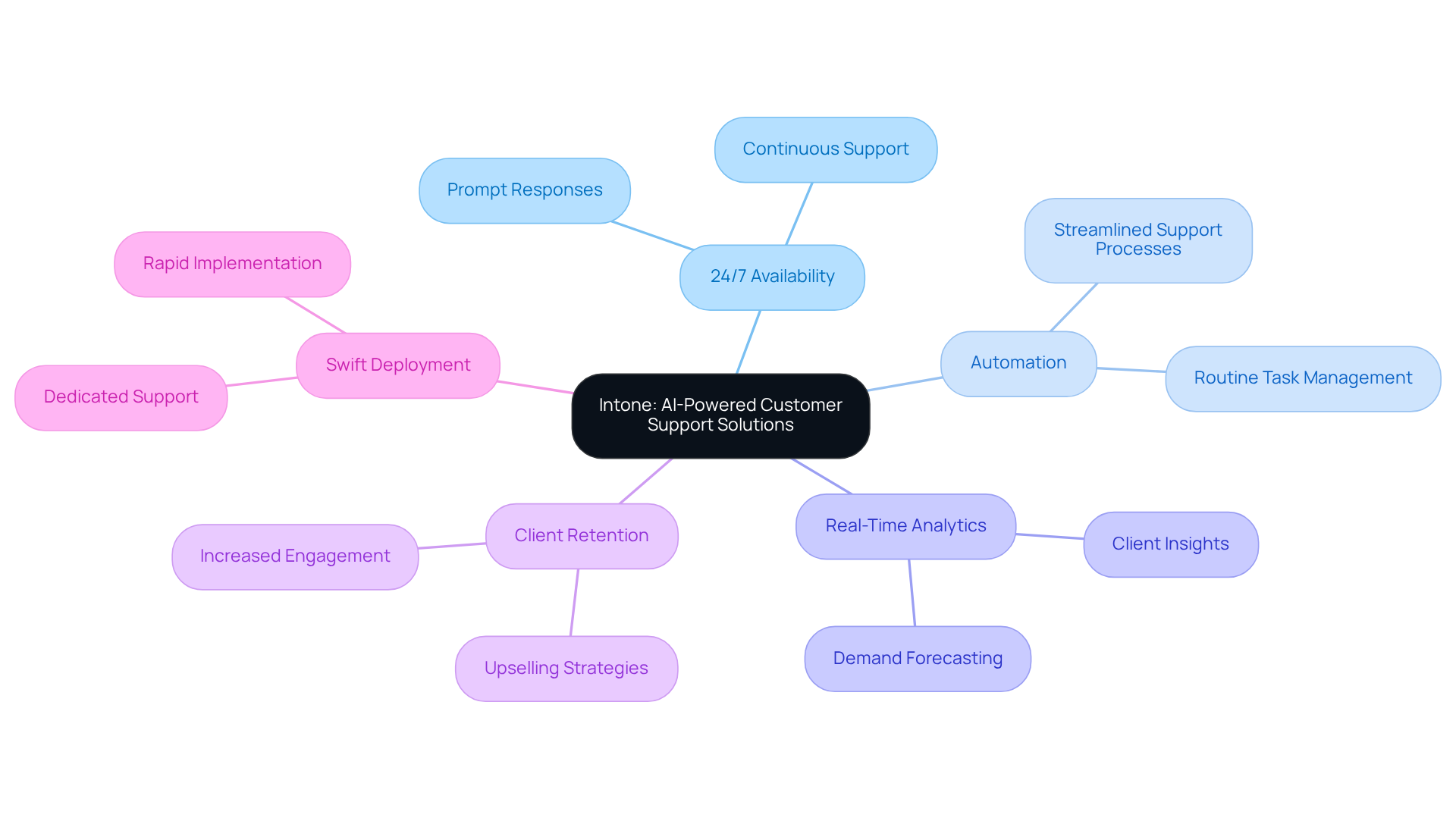
Amazon: Personalized Shopping Recommendations with AI
Amazon harnesses advanced algorithms, notably its innovative 'Interests' feature, to meticulously analyze consumer behavior, including previous purchases and browsing patterns, thereby generating tailored product recommendations. This AI-driven methodology significantly enriches the shopping experience, markedly increasing the likelihood of additional purchases. By continuously adapting to client interactions, Amazon's system evolves with changing preferences, ensuring that shoppers are consistently presented with relevant options. This dynamic approach not only enhances user satisfaction but also drives higher conversion rates, reflecting the profound impact of AI on buyer purchasing behavior within the e-commerce landscape.
As an Amazon spokesperson noted, the 'Interests' feature acts as an automated personal shopper, utilizing large language models to interpret user preferences and deliver ongoing, dynamic recommendations. With 77% of consumers anticipating from e-commerce companies, the significance of such innovations is paramount. Furthermore, 70% of retailers that invested in personalizing their client experience reported an ROI of at least 400%, underscoring the effectiveness of AI in driving sales and fostering client loyalty. The e-commerce personalization software market is projected to expand from $263 million in 2023 to $2.4 billion by 2033, highlighting the increasing importance of personalization within the retail sector.
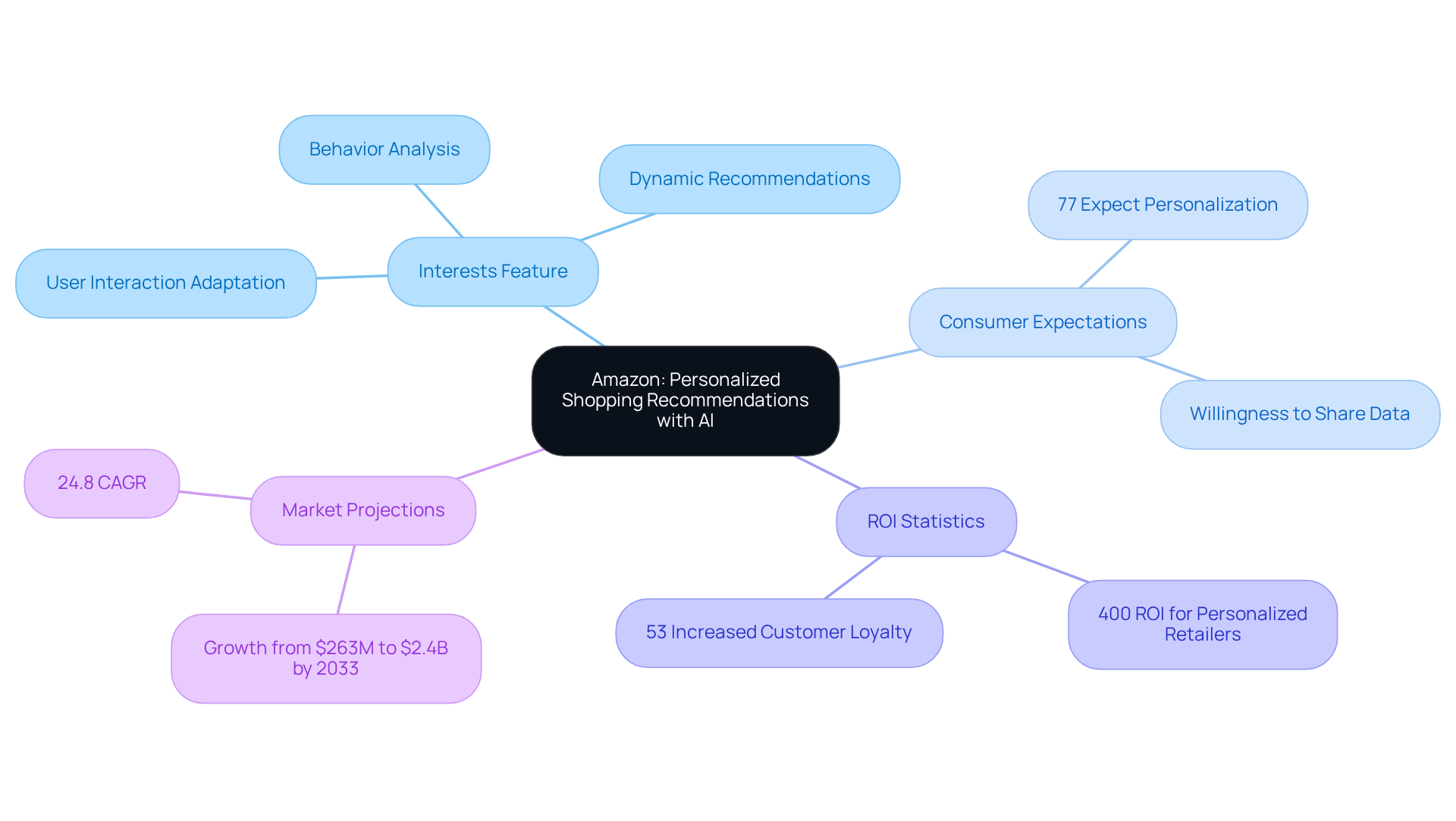
Walmart: AI-Powered Inventory Management Solutions
Walmart has revolutionized its inventory management by integrating retailer AI technologies that predict demand and optimize stock levels. This innovative approach captures attention as it leverages retailer AI to utilize historical sales data alongside current market trends to ensure product availability. The result is a significant reduction in stockouts and overstock situations, which builds interest in the effectiveness of Walmart's strategy. This proactive method not only enhances client satisfaction but also minimizes waste and lowers operational expenses, enabling Walmart to maintain competitive pricing.
The implementation of retailer AI-driven analytics has led to a 30% reduction in emergency alerts, demonstrating a compelling desire for overall inventory management effectiveness. This reduction allows for quicker responses to potential issues, showcasing Walmart's commitment to operational excellence.
Furthermore, Walmart's Intelligent Orchestration Layer for Warehouse Control Systems enhances operational efficiency by continuously monitoring and maintaining automation, ensuring that inventory levels are aligned with demand. As Tim Simmons, senior vice president at Walmart International, emphasizes, the integration of adaptive, intelligent systems is crucial for addressing client needs in a rapidly changing market.
With AI anticipated to without human validation in the next two to three years, Walmart is poised to further improve its operational efficiency and client satisfaction, prompting action towards adopting similar innovations in inventory management.
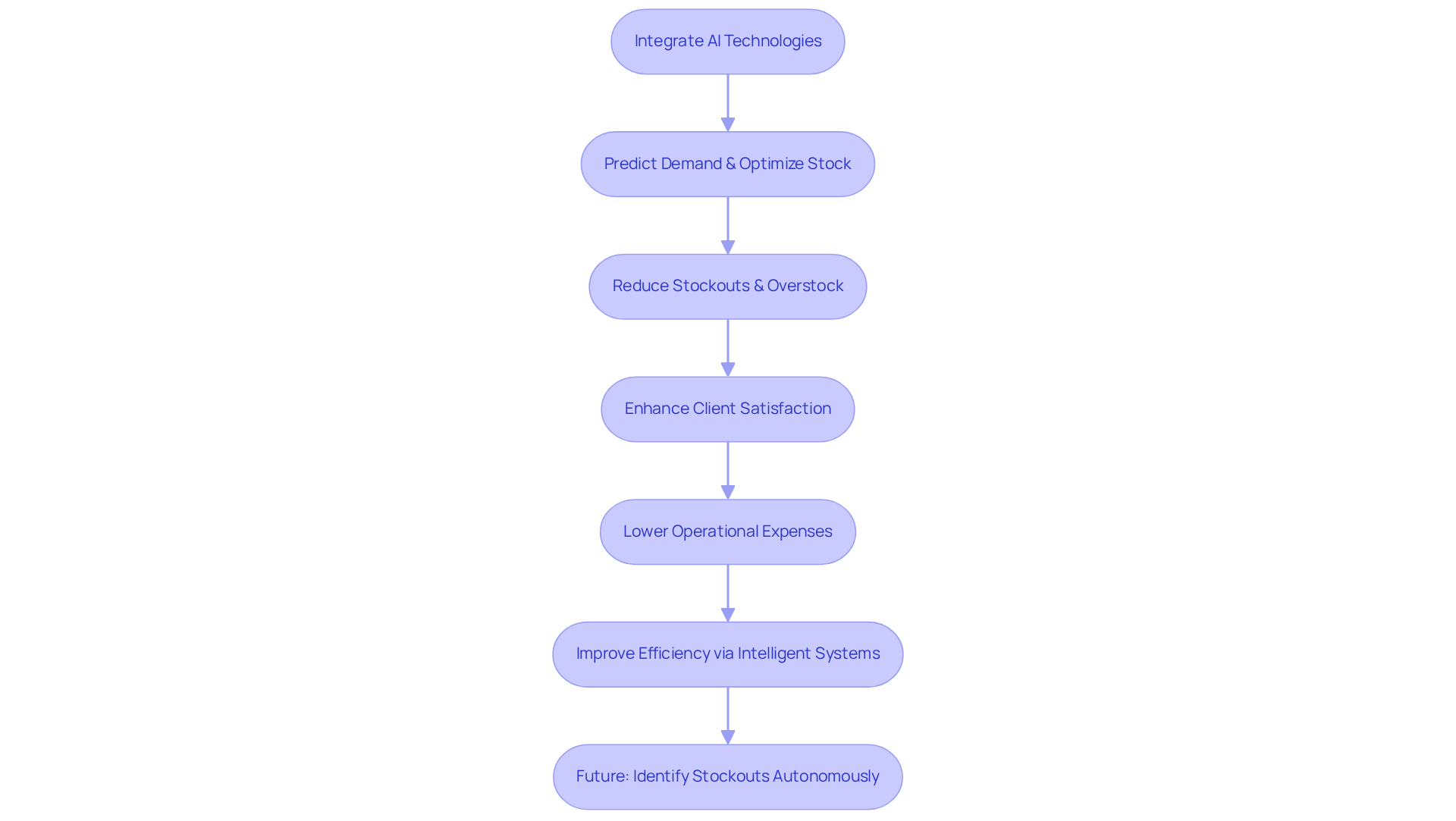
Sephora: AR-Powered Virtual Try-Ons for Enhanced Engagement
Sephora's AR-powered [virtual try-on feature](https://ironplane.com/ironplane-ecommerce-blog/augmented-reality-ar-shopping-how-virtual-try-ons-are-changing-consumer-behavior) revolutionizes the shopping experience by allowing shoppers to experiment with a variety of makeup items in real-time via their smartphones. This interactive tool not only boosts client engagement but also empowers users to make .
By fostering a fun and immersive atmosphere for item exploration, Sephora has experienced a significant increase in customer satisfaction and loyalty. The integration of this technology has resulted in a remarkable uplift in conversion rates, with reports indicating a 28% increase in user adoption of the Virtual Artist feature.
Furthermore, the implementation of AR technology requires collaboration among various departments, ensuring a seamless integration that enhances visualization and reduces return rates. As modern consumers, particularly Gen Z and Millennials, demand authenticity and personalization, Sephora's innovative approach positions the brand as a leader in utilizing AR to enhance retail experiences and drive repeat business.
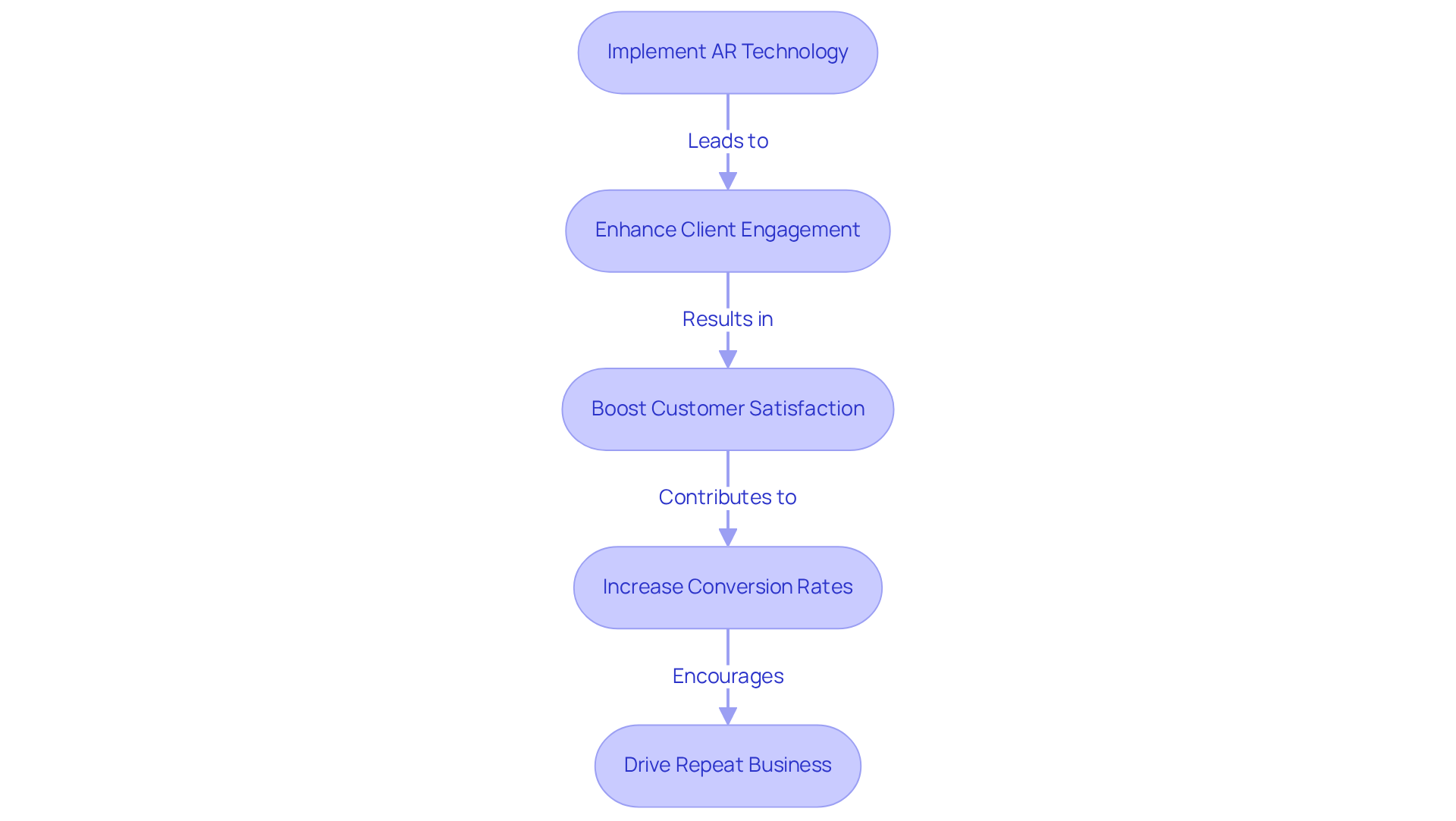
H&M: Chatbots Enhancing Customer Service
H&M has adeptly integrated AI-driven chatbots into its service framework, empowering clients to swiftly obtain information regarding product availability, order tracking, and returns. By automating routine inquiries, H&M effectively reallocates human resources to tackle more complex client issues, thus significantly enhancing overall service efficiency.
Furthermore, by leveraging Intone's AI voice agents, retailer AI can amplify their upselling strategies and successfully re-engage past buyers. With seamless implementation and personalization, Intone's deliver intelligent analytics and immediate insights, enabling businesses to monitor performance and refine client interactions.
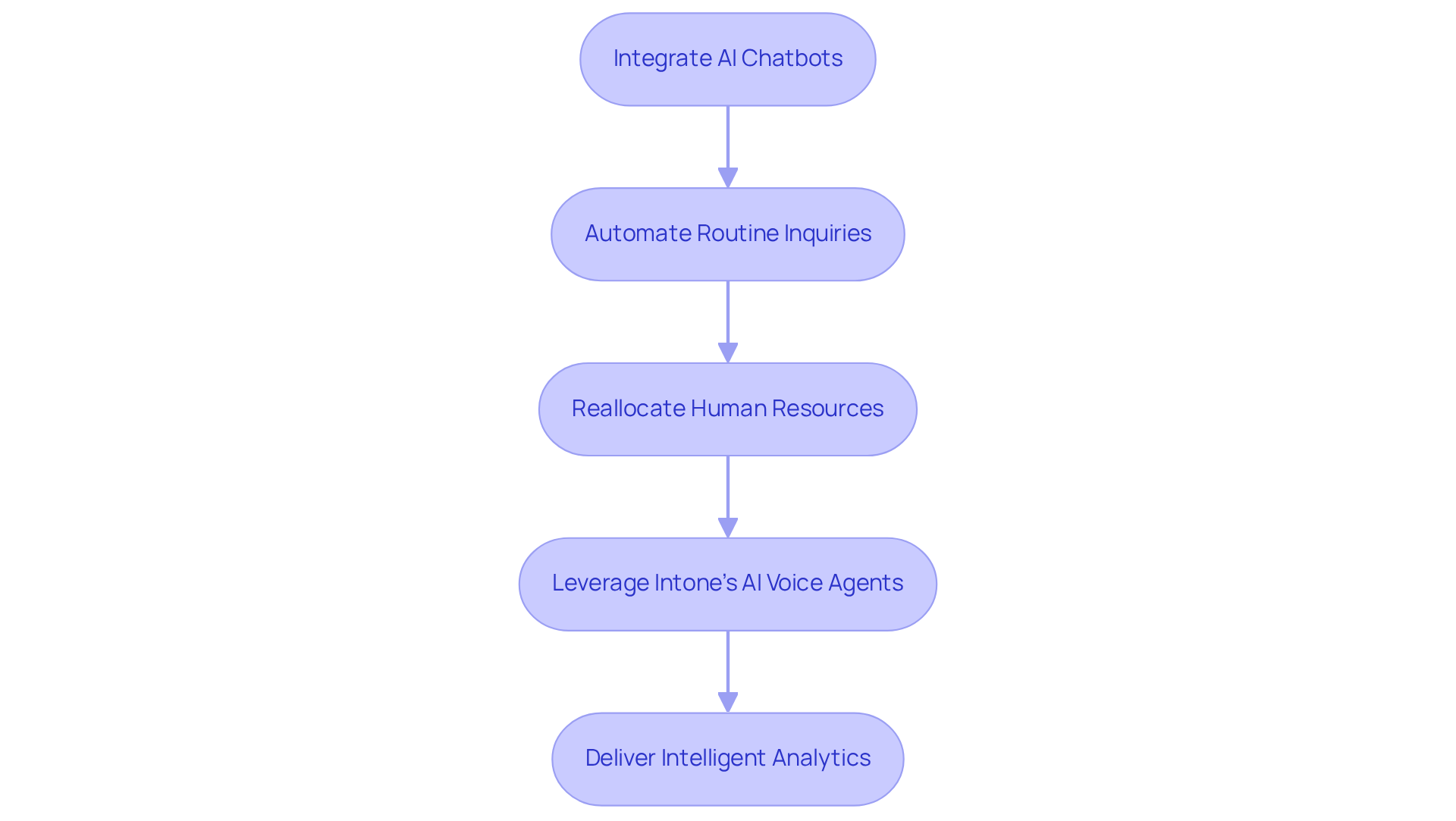
Target: Predictive Analytics for Customer Insights
Target uses retailer AI along with predictive analytics to gain profound insights into consumer behavior and forecast shopping trends. By meticulously analyzing buying habits and preferences, Target tailors its marketing strategies and offerings to align with consumer needs. This not only elevates client satisfaction but also markedly enhances sales performance by ensuring that the right products are available precisely when consumers need them. Consequently, retailer AI implementing such strategies can witness revenue growth of up to 15%, underscoring the substantial advantages of integrating predictive analytics into their marketing initiatives.
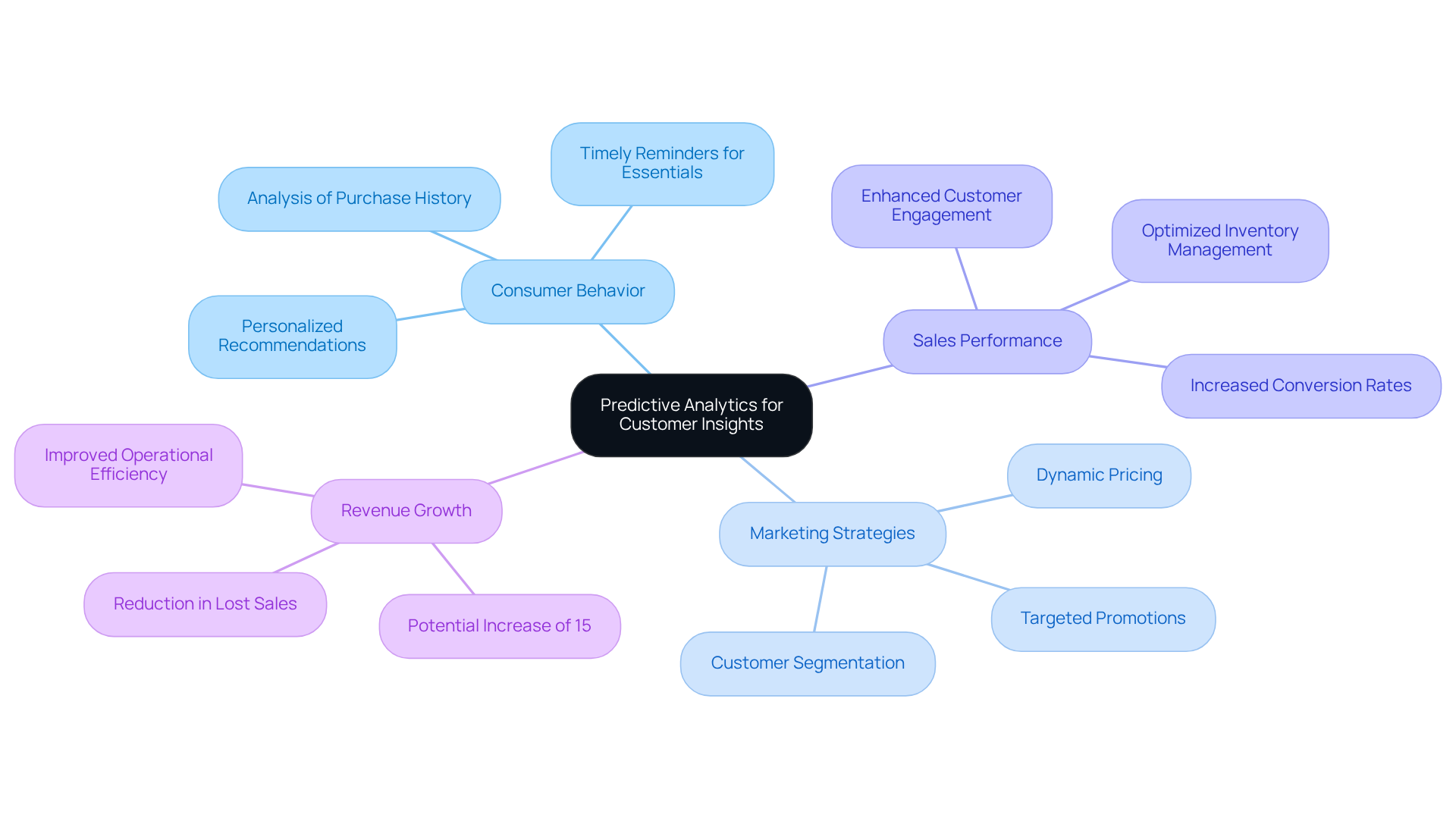
Best Buy: AI-Driven Personalized Shopping Experiences
Best Buy harnesses the power of retailer AI to create a highly personalized shopping experience, utilizing customized recommendations and targeted marketing campaigns. By meticulously analyzing consumer behavior and preferences, the company effectively showcases relevant products and promotions, significantly increasing the likelihood of purchase. This tailored strategy not only enhances client satisfaction but also fosters brand loyalty, driving repeat business.
Notably, individuals who engage with Best Buy's customized homepage exhibit an impressive 70% increase in engagement compared to those who do not. Furthermore, with 83% of consumers expressing interest in personalized offers, Best Buy's approach aligns seamlessly with contemporary consumer expectations, underscoring the importance of tailored marketing in cultivating lasting client relationships.
To further elevate client service, Intone's automate tier-1 support, providing 24/7 real-time assistance for common inquiries, order tracking, and password resets. This integration streamlines client interactions, enabling Best Buy to manage peak times effectively, thereby reducing agent burnout and enhancing overall sales efficiency.
The company's initiatives for a new search system driven by retailer AI further exemplify its commitment to improving client interactions, positioning Best Buy competitively within the evolving retail landscape.
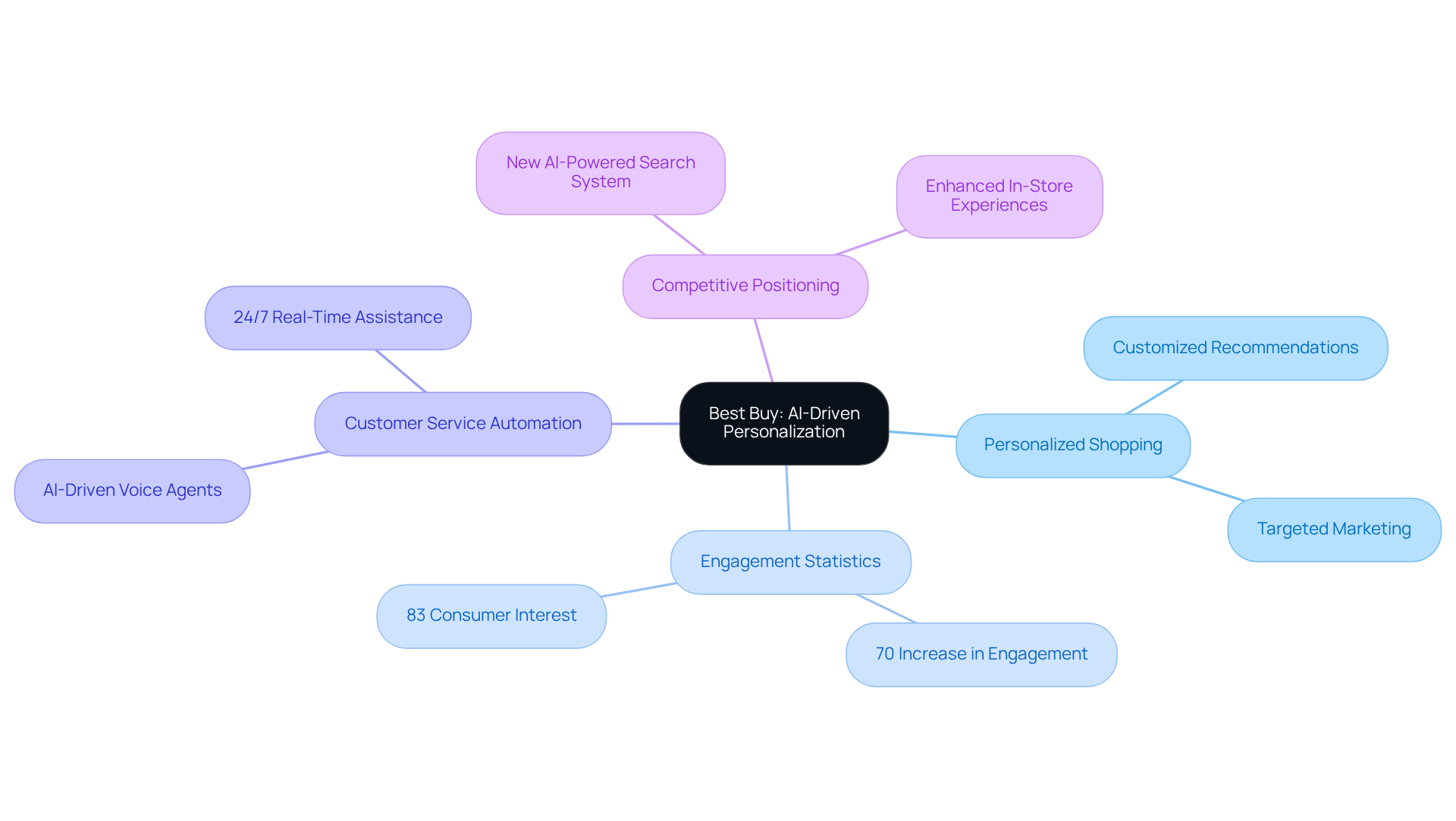
ASOS: Visual Search and Image Recognition for Easy Discovery
ASOS has harnessed the power of visual search technology, allowing users to upload images for discovering similar items on their platform. This innovative feature not only captures attention but significantly by facilitating quick and effortless item discovery, thereby reducing the friction often associated with online shopping. By optimizing item discovery, ASOS not only elevates client satisfaction but also drives higher conversion rates. The integration of AI image recognition technology has proven to be a game-changer, enhancing search accuracy and minimizing irrelevant results, ultimately leading to increased sales.
Retailers leveraging retailer AI advancements are witnessing enhanced engagement and loyalty, as shoppers can effortlessly discover items that align with their preferences. Furthermore, ASOS reported impressive pre-tax profits of GBP102 million (US$133 million) alongside a remarkable 26 percent increase in revenues, underscoring the financial benefits of this technology. Instructing users on how to effectively utilize visual search features is vital for maximizing its impact, as it can significantly reduce bounce rates by providing relevant choices instantly with a single image.
Continuous updates and management of visual search integrations are essential to maintain accuracy and performance, ensuring that ASOS remains competitive in the ever-evolving retail landscape. The combination of these strategies not only reinforces ASOS's market position but also sets a precedent for the future of online retail.

IKEA: Smart Home Solutions Enhancing Customer Experience
IKEA stands at the forefront of smart home technology, delivering products that seamlessly integrate into users' lifestyles. By offering smart home solutions that enhance convenience and personalization, IKEA significantly improves the overall shopping experience. Customers can effortlessly control their home environments through mobile apps, allowing for easy management of lighting, temperature, and security. This innovative approach not only addresses customer needs but also solidifies IKEA's position as a leader in the smart home market.
With the projected to reach nearly 155 billion USD in 2023 and an estimated revenue of 139 million USD, IKEA's commitment to user-friendly technology is timely and strategic. The launch of over 20 new Matter-enabled items in January 2026 will further improve compatibility among brands, making smart home technology more attainable and attractive to consumers. As smart home systems become increasingly vital for energy management and convenience, IKEA's focus on integrating technology into everyday life positions it to meet the evolving demands of modern consumers.
Furthermore, with the number of smart homes forecasted to surpass 400 million by 2024, IKEA is well-positioned to capitalize on this growing trend. David Granath, Range Manager at IKEA of Sweden, stresses that incorporating Matter into their offerings is a major advancement in making smart home technology user-friendly and economical, thus reducing the barrier for consumers to embrace these innovations.

Zara: AI Initiatives for Inventory and Customer Engagement
Zara effectively harnesses retailer AI to optimize its inventory management, ensuring that product availability aligns seamlessly with consumer demand. By meticulously analyzing extensive sales data and client feedback—drawing on insights from its partnership with Jetlore—Zara adeptly adjusts its offerings to mirror evolving trends. This agile methodology not only elevates client satisfaction but also significantly curtails waste and operational costs.
For instance, Zara's AI-driven predictive modeling has achieved an impressive:
- 20% reduction in overstock
- 15% decrease in fabric waste
Thereby reinforcing its competitive edge within the fast fashion industry. Additionally, the incorporation of retailer AI tools, such as recommendation engines that personalize the shopping experience, has empowered Zara to realize a turnaround time of just one week for new product launches, in stark contrast to the industry average of three to six months. This heightened responsiveness not only boosts customer engagement but also positions Zara as a frontrunner in sustainable fashion practices, effectively addressing the challenges associated with managing inventory across its expansive store and distribution network.
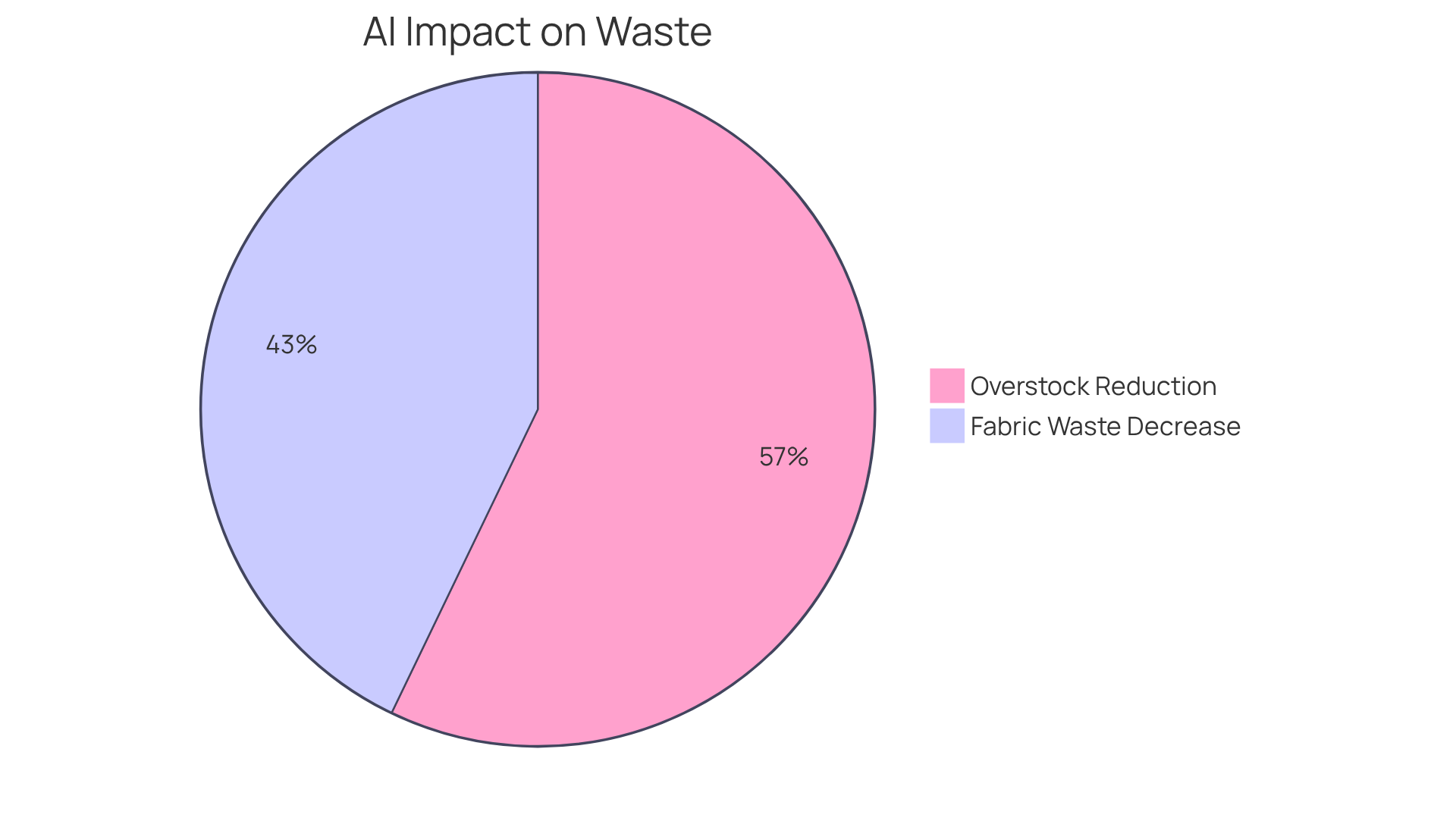
Conclusion
The integration of artificial intelligence in retail is fundamentally reshaping the landscape of customer engagement, enhancing experiences, and driving business success. Retailers are harnessing AI innovations to provide personalized services, streamline operations, and ultimately build stronger relationships with their customers. As demonstrated by the insights shared, these advancements not only address immediate consumer needs but also anticipate future trends, ensuring retailers remain competitive in a rapidly evolving market.
Key innovations highlighted in this article include:
- AI-powered customer support solutions that operate around the clock
- Personalized shopping recommendations that adapt to consumer behavior
- Advanced inventory management systems that optimize stock levels
Companies like Sephora and ASOS showcase how augmented reality and visual search technology can enhance user engagement, while Walmart and Target exemplify the power of predictive analytics in understanding and meeting customer demands. Each of these strategies illustrates the transformative potential of AI in creating seamless, efficient, and satisfying shopping experiences.
As the retail industry continues to embrace these technological advancements, it is crucial for businesses to stay informed and proactive in adopting AI solutions. The future of retail lies in the ability to leverage data-driven insights and innovative technologies to create tailored experiences that resonate with consumers. By investing in AI, retailers not only enhance their operational efficiency but also position themselves to meet the evolving expectations of their customers, ultimately fostering loyalty and driving growth in an increasingly competitive environment.
Frequently Asked Questions
What is Intone and what services does it provide?
Intone offers AI-powered voice agents that provide 24/7 customer support for retailers, allowing businesses to respond promptly to inquiries about product availability, order status, and returns.
How does Intone's AI improve customer engagement?
By automating client interactions, Intone's AI enhances engagement by ensuring inquiries are resolved quickly and efficiently, without the limitations of human staffing.
What benefits do retailers experience by using Intone's AI solutions?
Retailers can gain real-time analytics that provide insights into client concerns, helping them identify trends, forecast demand, optimize inventory, and improve overall customer satisfaction.
What impact does retailer AI voice agents have on client retention?
Companies using retailer AI voice agents can see a 25% increase in client retention, highlighting the effectiveness of this strategy in enhancing the shopping experience.
How quickly can Intone deploy its AI agents?
Intone can deploy AI agents within weeks, accompanied by dedicated support to ensure accuracy and compliance.
How does Amazon utilize AI for personalized shopping experiences?
Amazon uses advanced algorithms, including the 'Interests' feature, to analyze consumer behavior and generate tailored product recommendations based on previous purchases and browsing patterns.
What are the benefits of Amazon's personalized shopping recommendations?
This AI-driven approach enriches the shopping experience, increases the likelihood of additional purchases, and evolves with changing consumer preferences, leading to higher conversion rates.
What statistics highlight the importance of personalization in e-commerce?
77% of consumers expect tailored interactions from e-commerce companies, and 70% of retailers that personalized their client experience reported an ROI of at least 400%.
How has Walmart improved its inventory management using AI?
Walmart has integrated retailer AI technologies to predict demand and optimize stock levels, significantly reducing stockouts and overstock situations.
What results has Walmart achieved through its AI-driven inventory management?
Walmart has seen a 30% reduction in emergency alerts, enhancing inventory management effectiveness and allowing quicker responses to potential issues.
What future developments are anticipated for Walmart's inventory management?
AI is expected to identify stockouts without human validation within the next two to three years, potentially further improving operational efficiency and client satisfaction.






